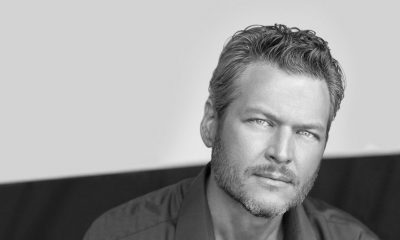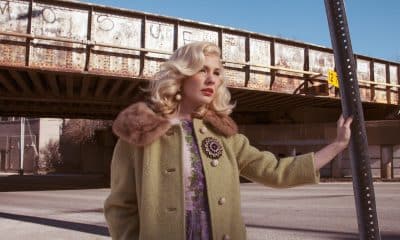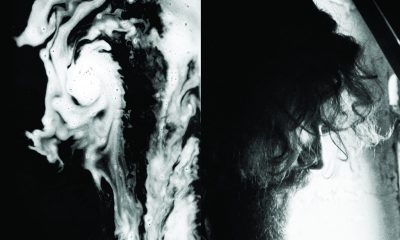Interviews
Jamie O’Neal Readies Two New Albums: An Exclusive Interview
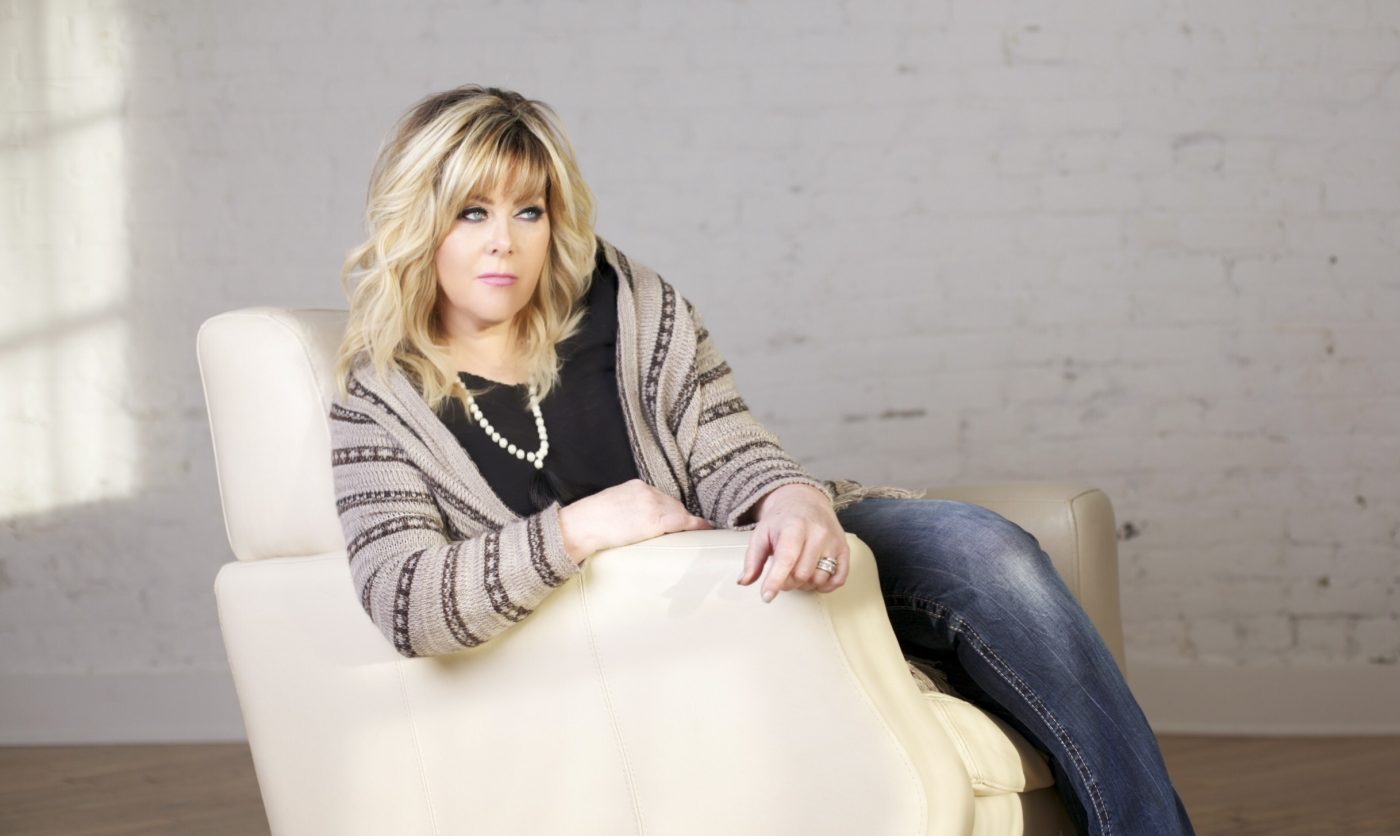
It’s been almost a decade since Jamie O’Neal’s career was at its zenith–a zenith which was also its starting point. O’Neal’s 2000 debut album Shiver rose to Gold status on the strength of two #1 singles, “There Is No Arizona” and “When I Think About Angels.” Five years after her debut, O’Neal reemerged with her only other top 10 hit “Somebody’s Hero.”
In this exclusive interview with The 9513, O’Neal talks about her fast start and her later struggles, her little sister Minnie, an upcoming classics album that she’s been working on, and her new single “Like A Woman.”
JIM MALEC: I recently had a chance to interview your sister, Montage recording artist Minnie Murphy. Is Minnie as talented as I think she is?
JAMIE O’NEAL: She’s awesome. When she was a little girl, ten years old or something, she started writing songs. She was probably even younger than that. It’s so cute to have a little sister saying “I want you to hear my new song!” I’ve also been amazed that she can just sit down and play the piano like she does. Between all of us at the house, Minnie would be the one always at the piano, always practicing. She really has a passion for music. It wasn’t something she did on the side, she really lived for it. I think she’s still that way. She’s always doing gigs and always going to other people’s gigs.
I’m out here in the suburbs and she’ll call me up and say “let’s go hear so and so,” and I’m like, “are you kidding me? My feet are up on the couch, I’ve got my sweatpants on, I’m gonna be in bed in an hour. There’s no way I’m going.” That’s not her.
JM: You’ve been a big influence on her, but I know you are actually half sisters. You’re also a bit older than she is. How would you characterize your relationship? I wonder, based on what you just told me about how she’ll call you to hang out, are the two of you closer now than you were when you were growing up?
JO: As adults we’re closer and we relate to each other in a completely different way. Back then I think I was somebody that both of my sisters looked up to and who they thought was so glamorous. I had boyfriends and I wore high heels and they’d sit there and watch me do my makeup and things like that. Now the three of us go to the movies a lot and hang out much more than we did back then because we all live in the same town. I mean, they lived back in Washington State, so they knew me more as a visitor, in a way.
But it’s great. I don’t think of them as my half sisters or half brother. I’m very, very close to them.
JM: It’s hard to believe that is has been more than eight years since the release of your debut album, Shiver. Five years later, you released Brave, and your third album is slated for March. Why so long between projects?
JO: Actually, this album is not coming out ‘till May. When you say March I get a little scared because we’re still working on it!
I feel like I’m one of those people who believes that everything happens for a reason, but I think the politics and the difficulties that come with being at a corporation where a lot of decisions are made that have nothing to do with you–where you’re slotted into a time frame because they have their fiscal year ending–and everything’s done in a certain way, that all contributed to my situation.
It’s not just the art of the music and the flow of your creativity. You’re dealing with numbers. And you’re dealing with people who have jobs and who have to answer to their bosses. With me, it was just timing. I would have a single that I thought was ready to go, and they said they couldn’t get to it and that I was eighth in line behind other artists. That happened to me at Mercury. That happened to me at Capitol. There are frustrations and hurdles to get over. They changed staffs—I mean, one minute I was working with this person, the next minute someone else was brought in and it’s just very hard. I definitely ran the gamut of difficult circumstances to come up against.
At the end of the day it’s all about my passion for the music and hopefully finding people who want to work with me and who are, hopefully, just as passionate about what I want to do and where I see my music going as I am. Luckily I’ve been given another chance at that.
JM: You’re with 1720 Entertainment now. Tell me about your relationship with that label, and also about being an indie artist. Does it change your goals and expectations? And, more generally, how are those goals and expectations different now as opposed to when your first album came out?
JO: I’ve never really been a person who sets goals. I’m not a Type A, you know? Got the record deal, check. Had a number one, check. I don’t really think of it like that. I just keep going. I have blinders on. I’m trying to better myself, to expand my range. I listen to old demos and I think I sing so much better now than I used to 10 or 15 years ago when I first got back to town. I feel like I’m stronger now in who I am and what I want to say, and in what I want my records to sound like. I feel like I know myself better, and I look back and listen to what I was doing back then and I think I was just finding my feet.
Now I’ve kicked down the door, so to speak, in the music business with what I’ve accomplished. And I just want to keep going. The fans and being on stage, that’s what I love and what I live for. Just to get out there and perform, that’s my number one love. Everything else—being in the studio, writing songs—that’s great too, and I enjoy the creative process, but it’s all to meet the end result, which is performing the songs for the fans on stage and getting that response back.
JM: I’ve talked to a number of artists over the past couple of years who have gone through a similar situation as yours. There are certainly a number of individuals who have had a record ready to go that was never released, singles where maybe the timing wasn’t right, and one of the things that is kind of a common thread there is that sometimes there is a great deal of disappointment in their voices as they tell me their stories. That disappointment, I think, is because these artists came to Nashville with aspirations to be big stars. They wanted to achieve a very high level of success, to be seen in the same light as their heroes. And most of them have tasted the very tip of that success, only to have it yanked away. Is that something you wanted? When “There Is No Arizona” shot up to #1, were you thinking about being a big star? And if so, has that changed now? Because it’s probably harder for you to achieve that at this point in your career.
JO: Absolutely. Everybody who goes into this business wants to be Reba McEntire or Dolly Parton or somebody who is an icon. Somebody who has done so much and been so much to so many people. That was definitely part of my dream.
I feel like when I became a mom, though, part of my priorities shifted. I used to live for my career, and now my career is part of my life. But it’s not my life. It’s not everything. Only when you’re a mom can you understand that kind of feeling. I never thought I’d feel this way. It always used to be about making it.
Being up on stage with Reba was the pinnacle, for me. Out on the Girls Night Out tour, being able to sing with her every night—and she actually just recorded one of my songs for her new album. And that just feels amazing to me. It’s just incredible that life has come full circle, to think that I’m going to get to hear Reba singing something that I wrote. It’s gonna be incredible to me.
JM: I’m excited about Reba’s new project. Scott has done some cool things at Big Machine.
JO: Scott Borchetta is amazing. I wish I had a chance to work with him! I think that would be incredible.
When I was at Capitol I would write songs and I was turning in songs that they didn’t like. And I was so frustrated that I actually said to them, “I don’t feel like you guys like what I do. I feel like you’re not in to what I do.” As an artist, when you write something that you’re just on fire about and you just know that it’s a hit, the only chance you’ve got is if someone else at the label is in alignment with you. And unfortunately I didn’t have that for my last project with them. I didn’t have anybody that loved what I was doing, and so that’s why I ended up leaving. You have to have somebody there going “this is great.” I had it with Keith Stegall, and I have it with Terry Johnson at 1720. I feel like it’s more of a team effort here. Someone’s carrying the flag. That’s what I had at Mercury with Keith and when he left, everything changed for me. I feel like I have that again. I feel like Terry’s really into what I do. And I feel very fortunate because he can help facilitate the dream.
I just hope to keep going. I hope fans still want to hear what I do. The video [for “Like A Woman”] seems to be getting a great response.
JM: One of the interesting things about the single and the video is that, often, when an artist leaves a major label for an indie project, the overall quality of his or her creative output deteriorates significantly. I didn’t hear that with “Like A Woman.” It sounds like a major label, big-budget track. From an artistic and production standpoint, how would you compare your upcoming record to your previous work?
JO: In this day and age you don’t need a big budget to make great sounding music. Nate Chapman has proved that with Taylor Swift. You don’t have to spend hundreds of thousands of dollars. My husband and I built a recording studio years ago and I have done all of my demos over the last five years right here. Now we finally have the chance to prove that we can make great music ourselves, and a lot of it comes down to great musicians. Nashville is a town that is full of so much talent. These guys come in and, you know, they call it production, but really it’s musicians coming in and sitting down and feeding off each other and coming up with great lines and melodies within the track as they’re recording it. And the producer helps that along. Sometimes people will say “it’s all about the producer,” but really it starts with the song and then it goes to these great musicians. It has so much to do with what they do and how they are in the studio.
JM: So why do major labels continue to embrace bloated budgets for their projects?
JO: I think it’s changing. Don’t you? I think the technology’s changing. You can do anything on ProTools. You don’t need to have a 10,000 square-foot studio. And with places closing down, that’s indicative. It’s just like record stores closing—now you can get music on the internet, you don’t have to go to the record store to get it. It’s bittersweet. It’s definitely bittersweet because in one way it’s easier, but in another it takes away a lot of the buildup. Remember when you couldn’t wait to go to a record store and buy a new album or a new CD because you hadn’t heard anything or seen anything? Now, as soon as it’s out it’s available. You don’t have to leave your house.
JM: So tell me about your album, then, with all of that in mind. Is this in line with what fans have heard from you before? Would you say that this is a step forward artistically? You talked earlier about your mindset having changed when you became a mom–is that reflected in your writing?
JO: I think it was reflected much more right after I had my child, with songs like “Somebody’s Hero” and “I Love My Life.” And then “Brave,” which kind of came out of a little postpartum and feeling like, “what’s going on with me, I’m crying all the time, I don’t recognize myself.” It was born out of coming back from that.
Now I feel like my writing is more thought provoking. I’ve got a song called “The World Goes On” and it’s about survival and getting through the tough times and actually finding a reason to get out of bed, which is something we’ve all had to deal with at one time or another because life is hard. And then there are fun songs and funny songs on there. There aren’t necessarily songs about being a mom. I think it’s more about world issues, about grown-up issues—more issues than just falling in love, which is what I used to write when I first moved to town.
But I think my sound is pretty recognizable and distinctive. I think this project, in that sense, is similar to what I’ve always done. Vocally, I’m always wanting to write something that’s challenging to sing, and I definitely tried to do that here.
JM: I heard that you were working on a classic country album. Is that project still in the pipeline?
JO: Yes, but it had to be put on the backburner because we are working on the original album. We didn’t want to confuse the issue when we were trying to get one thing out there.
We were working on the country covers album when we got the new deal with 1720. So we kinda shifted gears. The classics album, which is called Rewind, is almost finished, and it’s something that I’ve loved doing. I’ve loved getting to record some of these songs that I adore. In my live show I do “Leavin’ On Your Mind,” which is one of my favorite songs to sing in the set. When it’s over I’m always like “darn, I’ve already sung that one.” I love Patsy Cline and I love going on the Opry and doing the old traditional songs.
JM: There are a number of artists—Patty and Martina to name two—who have released classics albums in the recent years. Why is there a delineation between so-called classic country and contemporary country? Why can’t the two co-exist on a single album?
JO: That is a good point. I don’t why they can’t. I was actually thinking of putting one of the classics on my new album.
I think with mine, it’s not like what Patty’s done. She’s more rootsy and has done more of the acoustic, rootsy versions of the songs. With mine, it’s about bringing some of the older songs into this day and age. I want the songs to sound, where if you didn’t know them, you’d think they were new. We wanted to make the songs a little bit more contemporary, yet still have a healthy respect for where they came from.
- Lists13 years ago
Top 10 Country Music Albums of 2010
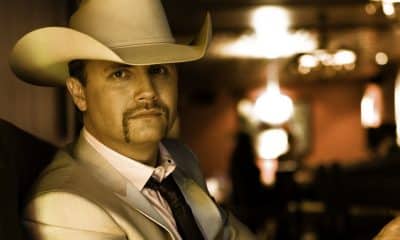
 Interviews5 years ago
Interviews5 years agoJohn Rich – The Interview

 Song Reviews16 years ago
Song Reviews16 years agoTaylor Swift – “Love Story”

 Interviews5 years ago
Interviews5 years agoHoneyhoney on Hiatus: Revisit our 2008 Interview with Suzanne Santo
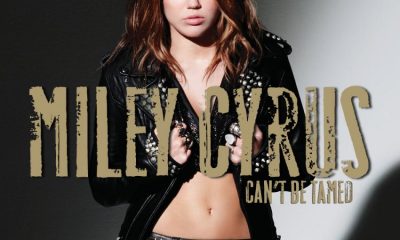
 Album Reviews14 years ago
Album Reviews14 years agoAlbum Review: Miley Cyrus – Can’t Be Tamed

 Song Reviews6 years ago
Song Reviews6 years agoThe Band Perry – “Hip To My Heart”

 Columns5 years ago
Columns5 years agoThe Link Between Folk Music’s Past and Present
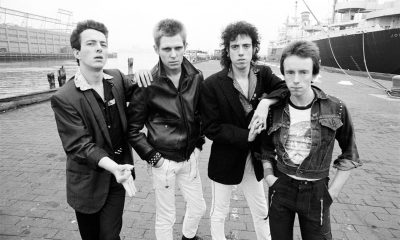
 Columns5 years ago
Columns5 years agoIs Marketing Killing Rock and Roll?


